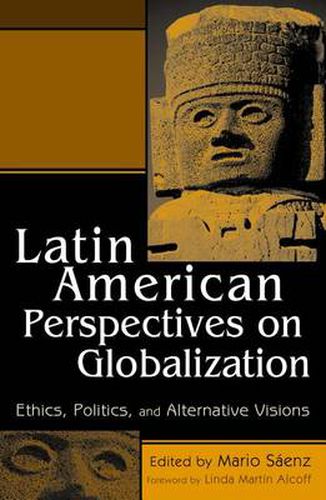Readings Newsletter
Become a Readings Member to make your shopping experience even easier.
Sign in or sign up for free!
You’re not far away from qualifying for FREE standard shipping within Australia
You’ve qualified for FREE standard shipping within Australia
The cart is loading…






A challenge to conventional theories of globalization, from thinkers in Latin American philosophy, literature, politics and social science. The contributors to this volume imagine a discourse in which revolution requires no temporalized march of progress or takeovers of state power but instead aims at local control and the material conditions for human dignity. They propose models of transcultural and intercultural relations that replace centre/periphery or world-systems approaches, thus removing the need for a central reference point. They also focus on the constructive questions of building toward dialogic relationships based on equality and epistemic co-operation rather than subsumption to a universalized paradigm. The work ultimately suggests a reconstruction of the world in terms of the interests of one of the peripheral regions of the world, arguing with cogency and urgency that none within contemporary globalization debates can afford to ignore the Latin American philosophical tradition.
$9.00 standard shipping within Australia
FREE standard shipping within Australia for orders over $100.00
Express & International shipping calculated at checkout
A challenge to conventional theories of globalization, from thinkers in Latin American philosophy, literature, politics and social science. The contributors to this volume imagine a discourse in which revolution requires no temporalized march of progress or takeovers of state power but instead aims at local control and the material conditions for human dignity. They propose models of transcultural and intercultural relations that replace centre/periphery or world-systems approaches, thus removing the need for a central reference point. They also focus on the constructive questions of building toward dialogic relationships based on equality and epistemic co-operation rather than subsumption to a universalized paradigm. The work ultimately suggests a reconstruction of the world in terms of the interests of one of the peripheral regions of the world, arguing with cogency and urgency that none within contemporary globalization debates can afford to ignore the Latin American philosophical tradition.